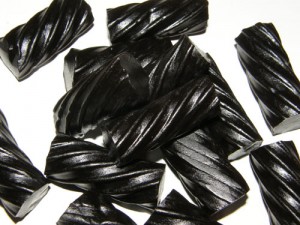
More evidence that low-calorie sweeteners are bad for your health
Studies show that artificial sweeteners can raise the risk of hypertension, metabolic syndrome, type 2 diabetes and heart disease, including stroke.

Natural Health News — Scientists have identified two substances in liquorice — used extensively in Chinese traditional medicine — that kill the major bacteria responsible for tooth decay and gum disease, the leading causes of tooth loss in children and adults.
In a study in the American Chemical Society’s Journal of Natural Products, they conclude that these substances could have a role in treating and preventing tooth decay and gum disease.
To test whether the sweet root could combat the bacteria that cause gum disease and cavities, the researchers took a closer look at various substances in liquorice.
They found that two of the liquorice compounds, licoricidin and licorisoflavan A, were the most effective antibacterial substances.
These substances killed two of the major bacteria responsible for dental cavities and two of the bacteria that promote gum disease. One of the compounds — licoricidin — also killed a third gum disease bacterium. The researchers say that these substances could help treat or even prevent oral infections.
Despite the popularity of liquorice flavoured candy in the West, liquorice root has been replaced in most commercial sweets and candies with anise oil, which has a similar flavour.
In November 2001 liquorice was selected as “Medicinal plant of the year 2012” because of its paramount importance to human well-being world-wide.
The dried root of the liquorice plant is a common treatment in Chinese traditional medicine, especially as a way to enhance the activity of other herbal ingredients or as a flavouring.
Traditional medical practitioners use dried liquorice root to treat various ailments, such as respiratory and digestive problems and chronic fatigue.
Before taking liquorice check with your herbalist or healthcare practitioner. Very high, uncontrolled doses may cause fluid retention, high blood pressure, and loss of potassium. Individuals with high blood pressure, heart disease, diabetes, or kidney disease are generally advised to avoid liquorice root. Liquorice may interfere with corticosteroid treatment, such as prednisone.

Please subscribe me to your newsletter mailing list. I have read the
privacy statement